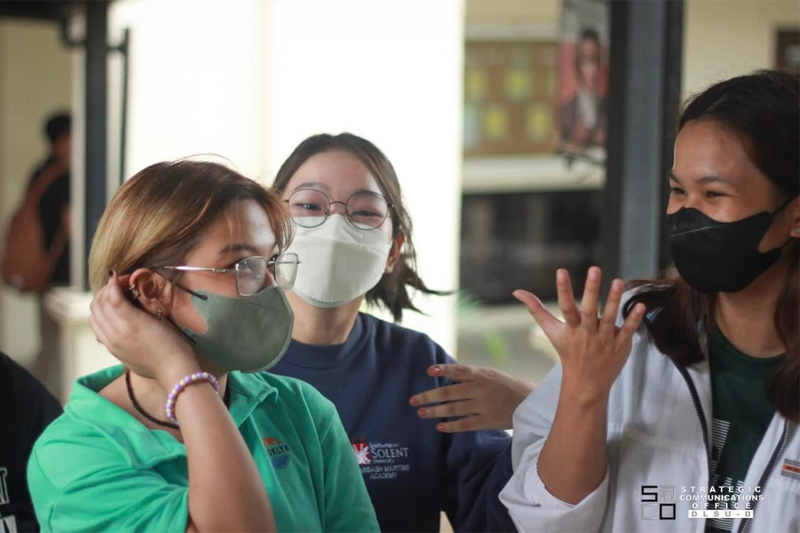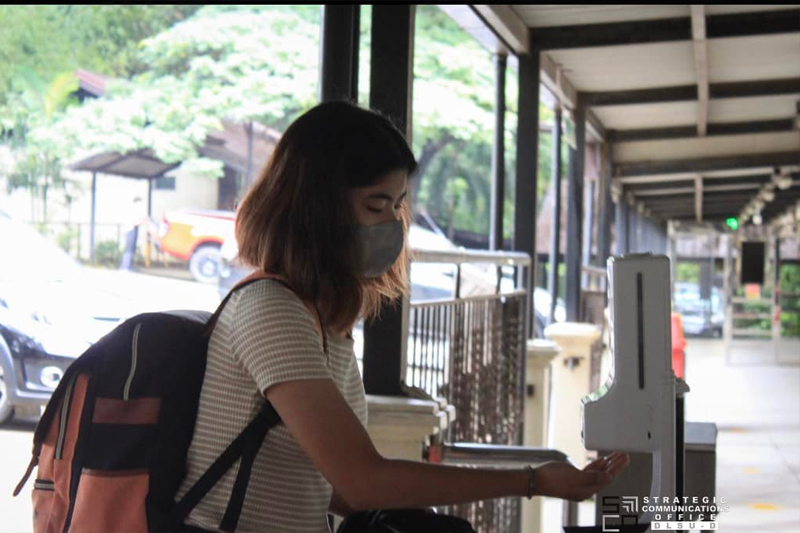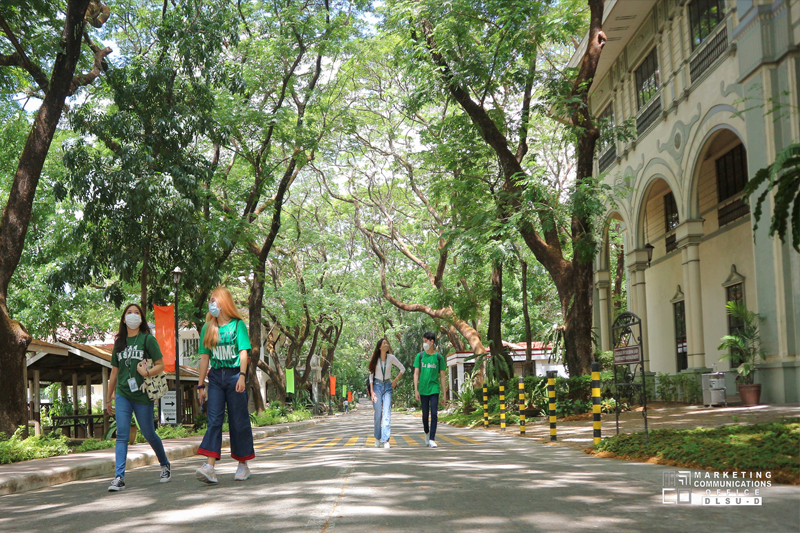Lasallians can look forward to a better normal in re-entering the campus after two years of the pandemic.
In an interview with Vice Chief Administrative Officer for Academics and Research Dr. Marco Saez, and Office of the Vice President for Administrative Services Dr. Nathaniel Golla, the school officials bared that preparations are already under way to welcome back the students safely on campus through new learning modes available this school year.
Guide to School Opening A.Y. 2022-2023
According to Dr. Saez, several modes of learning will be available for A.Y. 2022-2023. As a matter of fact, the Office of the Provost has released an advisory on the modes of delivery that will be used for General Education subjects, major subjects and NSTP-CWTS.
- NSTP-CWTS shall be blended mode (flex)
- Professional subjects attributed to the College of Education shall be onsite supplement
- Laboratory shall be enriched onsite.
Meanwhile, those who are based abroad and/or unvaccinated/not fully vaccinated shall have the following options:
- OPTION 1: As a special arrangement, we offer full online class for subject with onsite component, with restructured fees. Please take note that this arrangement will only be offered for the First Semester. It WILL NOT BE OFFERED any longer for the Second Semester.
- OPTION 2: Students may enroll in subjects offered fully online or with onsite supplement (please refer to the updated LCC). In effect, they may drop enrolled subjects requiring onsite attendance or add other subjects that do not require any prerequisite and are offered fully online. Everyone is asked to fill out the adding/dropping form for this purpose. Students, especially first year students, may coordinate with their associate dean/dean for guidance. Dropping period is extended to 13 September 2022.
- OPTION 3: Return to the Philippines and/or get fully vaccinated as required by the government for students participating in F2F. Please consider plotting your flight itinerary in advance to avoid late attendance in classes in face-to-face mode.
“From fully online, we are transitioning to a combination of online and onsite for all activities (curricular, co-curricular, extra-curricular). This transition will drive a lot of decisions from use of facilities, teaching and learning guidelines, student activities, practically everything that makes up the DLSU-D experience. We are making sure that these are aligned with the health and safety protocol that our university follows,” he said.
Despite the challenges of adjusting to the new normal, Dr. Saez remains optimistic that Lasallians will overcome the challenges presented by the new protocols just as they have powered through shifting to an online mode of learning at the height of the pandemic.
“They are always opportunities for the academic community to get to know itself more as a community and in the process improve and become better, also as a community,” he said.
The safety of the Lasallian community is also of primary importance as administrators prepare for the gradual return of face to face learning. As part of the preparations of the Office of the Vice Chief Administrative Officer for Academic Support, buildings, classrooms and other facilities are undergoing inspection and retrofitting.
“Part of the preparations for the opening of classes is the continuous retrofitting of physical facilities to conform to government regulations and to keep the campus safe. Likewise, the BFMO has been concentrating on the rehabilitation of structures that will be used for onsite classes,” Dr. Golla said.
“There are also systematic efforts to improve campus services in areas of internet connectivity, transportation services, security, and health care. For IT Infra, the ICTC has already initiated the increase of subscriptions for the bandwidth and procurement of access points in support of online learning environment. For transport, General Services has contracted third party services to augment the present fleet of the University. For Safety and Health, disinfection of offices and rooms has become part of the regular housekeeping and maintenance program. For Security, the deployment of CCTV and K9 units and coordination with police authorities shall reinforce the guard force currently detailed in the University,” he continued.
Dr. Golla said that based on government requirements, college students who will have face to face interactions need to be fully vaccinated but such is nit the case for High School. Boosters are not required but the administration strongly encourages it for the added protection of the Lasallian community.
The VCAD also shared that the University is intensifying its shift to the automation of processes to make transactions safer and more convenient for members of the community.
“This is also in line with the health and safety protocols which adhere to contactless transactions. Needless to say, hopefully in the coming weeks and months there will be ease in transactions in the different offices,” he said.
Students can also look forward to the reopening of their favorite canteens after more than two years. Concessionaires have already submitted their application for accreditation in time with the reopening of the new school year.



